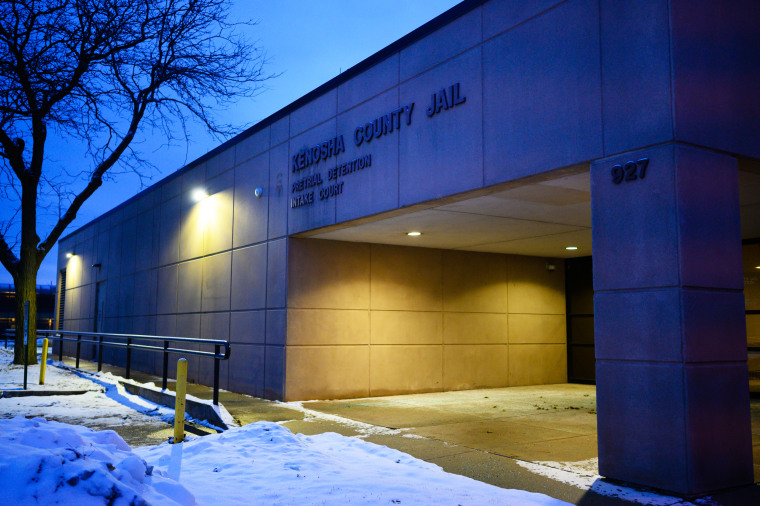Years of housing segregation and redlining have contributed to Wisconsin imprisoning its Black residents at a rate higher than any other state in the country, criminal justice experts say.
One in every 36 Black people are currently in prison in the state, according to a report from The Sentencing Project, a group that advocates for reduced incarceration. Black people represent 42 percent of the state’s total prison population despite accounting for only 6 percent of the total population.
The report, which uses data from the U.S. Census Bureau and the Bureau of Justice Statistics, also found that Black Wisconsinites are also nearly 12 times as likely as their white counterparts to be imprisoned, well above the national average and behind only New Jersey in the rate of racial disparity between Black people and white people.
The report's findings emphasize some long-standing problems in the state, said Larry Dupuis, legal director of the American Civil Liberties Union of Wisconsin.
“For many years, Milwaukee has been one of the top segregated areas in the country by most measures,” he said. “It has a long history that persists today because of deeply entrenched residential housing segregation. I think that plays a significant role in how this ends up playing out into these huge disparities by race in the criminal justice system."
About 65 percent of Black Wisconsinites live in segregated Milwaukee County, which contributes to the imprisonment rate, experts said.
“Police can occupy Black and brown neighborhoods, putting them under heavy surveillance and they’re more likely to be stopped and arrested,” Dupuis said.
Further, prosecution rates are higher and plea deals are lower for Black residents, said Ion Meyn, a law professor at the University of Wisconsin-Madison.
Officers in Wisconsin are less likely to arrest whites, and prosecutors decline charges against whites more often, he added.
Christopher Uggen, professor of sociology at the University of Minnesota, said racial disparity in Wisconsin prisons and elsewhere has been a long-standing concern.
“It’s not just incarceration, there are also housing, education, employment inequality and housing discrimination issues,” he said.
For example, having money to pay for a good lawyer could be the difference between a Black person being sentenced to prison or receiving probation, he said.
Wisconsin's Black imprisonment and racial disparity rates have worsened over the last five years, according to The Sentencing Project, which found that 1 in 39 Black people in the state were imprisoned in 2016.
Addressing the disparities in the state’s criminal justice system requires reclassifying some acts so they are no longer considered a crime, disciplining officers for racial profiling, and reducing housing segregation, Dupuis said.
“Right now, there’s no consequence for racially biased policing in Milwaukee,” he said.
Ashley Nellis, a senior research analyst and author of The Sentencing Project’s report, also recommends eliminating mandatory sentencing minimums for drug crimes and pushing governments to mandate racial impact statements, meaning lawmakers must forecast how every criminal justice law would impact demographic groups.
If the law is disproportionate, it either can’t pass or it must have special justification, she added.
“We need bold action,” Nellis said.
